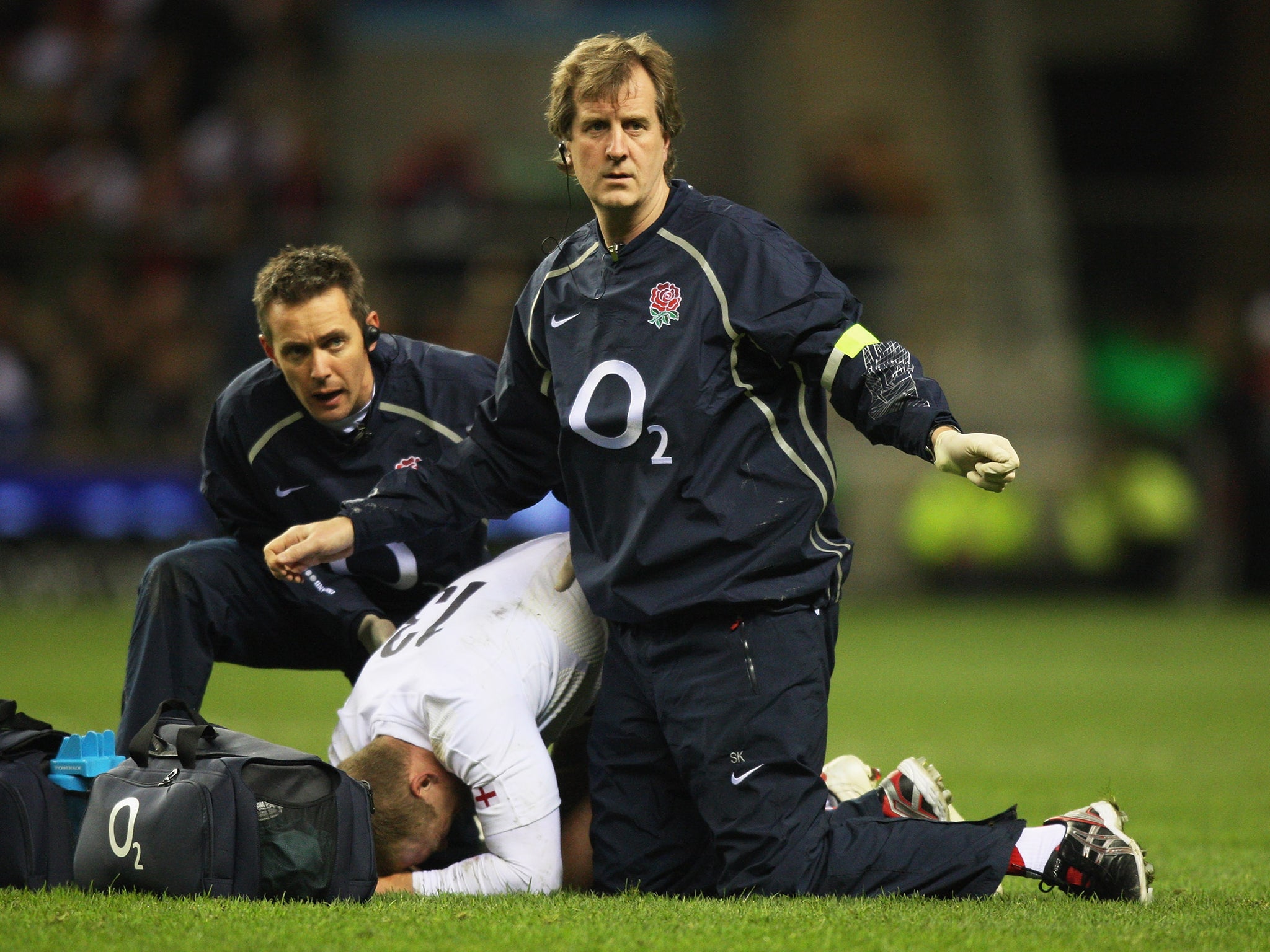Premiership rugby players still able to go all season without taking a drugs test, RFU Anti-Doping report reveals
In 2017/18, 739 anti-doping tests were carried out across the Premiership, Championship and Tyrrells Premier 15s with two players banned - but the dangers lie below the professional tier

The Rugby Football Union insists it is not a concern that a Premiership player can go an entire season without having to be drugs tested, with the new anti-doping report revealing that there were 739 carried out during the 2017/18 season.
While that number represents an 18 per cent increase on 2016/17, it represents the top two tiers of men’s professional rugby and the women’s Tyrrells Premier 15s, meaning that not every player was submitting to drug testing throughout the entire season.
It is also more than 100 fewer than the 2015/16 total number of tests, and with nearly 500 players in the Premiership plus a further 150 in the academy system – some of those tested more than once throughout the campaign – there is sure to be a large portion of professional players who did not have to submit to drug testing during the 2017/18 campaign.
The revelation is a concern in a sport where gains in size, pace and power is leading to more collisions with greater impacts, and although there were only two anti-doping failures out of 739 tests, the RFU have upped the number of tests throughout this season thanks to the increase in government funding for UK Anti-Doping.
Wasps’ Ashley Johnson received a six-month ban for using a contaminated supplement, mistakenly taking his wife’s weight loss pills, while Yorkshire Carnegie player Brandon Staples returned the first positive test for steroids in rugby union since 2011, receiving a four-year ban in the process.
Ukad’s doping statistics do not help rugby union’s cause, with 66 positive doping tests in the last 10 years more than the second and third sports combined (rugby league and boxing). Of the 66 current Ukad doping bans, 23 of them are from rugby union, with 11 from rugby league. No other sport has more than seven.
Ukad deputy director of operations Hamish Coffey said that the RFU's programme was "comprehensive but it's not just about the numbers", while the RFU medical services director Dr Simon Kemp – who also chairs its anti-doping advisory group – said "no programme would have a hard and fast minimum number of tests".
But what the Anti-Doping report shows is that the concern is not at the top of the game, but rather the ‘community’ level of the third-tier and below. Of just 99 test throughout the 2017/18 season, three returned positive for doping, a significant percentage increase when compared to the professional game, and former Premiership player James Hudson believes that the last-chance saloon mentality leads to players further down the pyramid considering performance-enhancing drugs.

“Rugby is unfortunately the most culpable of all sports in terms of anti-doping rule violations in the UK, which isn’t good,” said Hudson, who represented Bath, London Irish, Newcastle Falcons and Gloucester during a 13-year professional career before becoming a member of UK Anti-Doping’s Athlete Commission. “These figures are representative of the evidence over the last decade.
“The vast majority are in the sub-elite population, where athletes have dropped out of an academy system and dropped down to Championship-level or first division and they have made a poor decision.
“They feel to make it back to the top level it’s the last roll of the dice. That’s where most of these poor decisions come from.
“Younger athletes – 18 to 20 – they don’t quite get that first-team contract they have so desired for years. This can be coupled with the language from coaches – players feel more and more pressured into meeting the physical needs of the game. There is pressure on players to get bigger.
“There is potential vulnerability. They hear: ‘You are not quite big enough or strong enough’. There might be a range of reasons why they have not got a contract, but if players leave academies and think that’s the only reason they haven’t been included that’s when they are reaching for something. That’s a time we need to be really careful about the language we use.
“Players are maybe looking for a quick fix as they don’t have the support they once had. They are vulnerable athletes.”

The RFU are in agreement with Ukad that the number of drug bans currently being served are representative of society’s growing use of performance-enhancing drugs and a lack of knowledge about the impact of doping, which it is attempting to address through widespread education of players.
There were also four positive tests out of 332 under the RFU’s illicit drugs programme, all of which were for cocaine and involved the consumption of alcohol. While the cases involved players who were deemed “dislocated” from their team routines due to injury, the RFU keeps the identity of first-time offenders anonymous, with fines and psychiatric counselling implemented.
But earlier this month Sale Sharks player Jake Pope became the first player to test positive under the illicit drugs policy twice, leading to his name being revealed by the RFU, a fine and a six-month ban.
Join our commenting forum
Join thought-provoking conversations, follow other Independent readers and see their replies
0Comments